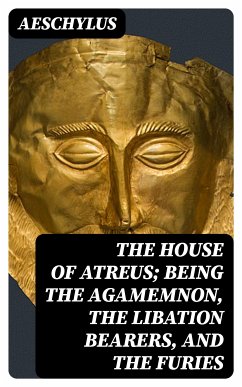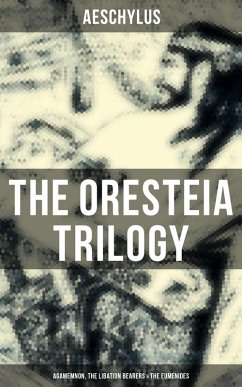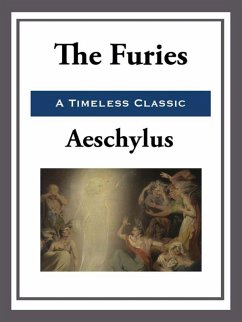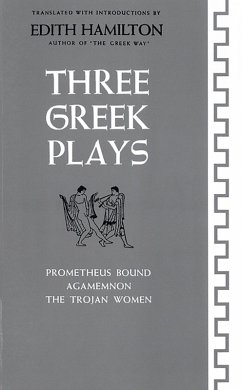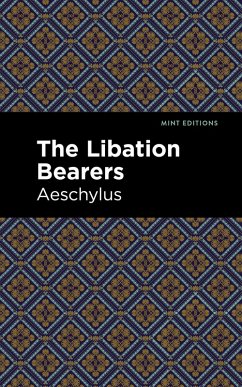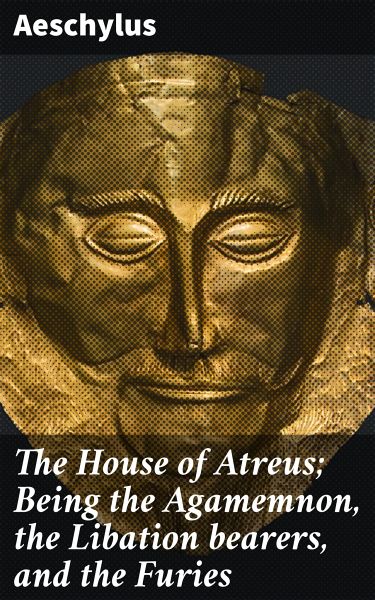
The House of Atreus; Being the Agamemnon, the Libation bearers, and the Furies (eBook, ePUB)
Enriched edition. Exploring Fate, Vengeance, and Family in Ancient Tragedy
Kommentar: Marchmont, Lydia / Redaktion: Good Press / Übersetzer: Morshead, E. D. A.
Versandkostenfrei!
Sofort per Download lieferbar
0,49 €
inkl. MwSt.
Weitere Ausgaben:

PAYBACK Punkte
0 °P sammeln!
The House of Atreus compiles three of Aeschylus's most profound tragedies: Agamemnon, The Libation Bearers, and The Furies, exploring the themes of fate, justice, and the cyclical nature of violence within the prestigious House of Atreus. Aeschylus employs a rich, poetic style filled with ominous imagery and dramatic irony, establishing a lyrical yet foreboding atmosphere that immerses the audience in the moral quandaries faced by its characters. Set against the backdrop of post-Trojan War Greece, these plays investigate the repercussions of past sins and the inexorable pull of destiny within ...
The House of Atreus compiles three of Aeschylus's most profound tragedies: Agamemnon, The Libation Bearers, and The Furies, exploring the themes of fate, justice, and the cyclical nature of violence within the prestigious House of Atreus. Aeschylus employs a rich, poetic style filled with ominous imagery and dramatic irony, establishing a lyrical yet foreboding atmosphere that immerses the audience in the moral quandaries faced by its characters. Set against the backdrop of post-Trojan War Greece, these plays investigate the repercussions of past sins and the inexorable pull of destiny within the framework of divine justice and retribution. Aeschylus, often referred to as the father of tragedy, penned these works in the 5th century BCE, during a time when theatrical performances were evolving as a means of public address and reflection on societal norms. His personal experiences, including participation in the Persian Wars and exposure to the conflict of human passions and fatalistic fate, deeply influenced his writing. The complex interplay of familial loyalty, divine command, and moral ambiguity present in The House of Atreus offers a lens through which we can understand the human condition. This collection serves as an essential introduction to Greek tragedy and is highly recommended for readers interested in the intersections of myth, morality, and history. Aeschylus's poetic mastery and profound insights into human nature encourage modern audiences to contemplate the timeless dilemmas of justice and vengeance, making this work a crucial addition to any literary canon. In this enriched edition, we have carefully created added value for your reading experience: - A comprehensive Introduction outlines these selected works' unifying features, themes, or stylistic evolutions. - The Author Biography highlights personal milestones and literary influences that shape the entire body of writing. - A Historical Context section situates the works in their broader era-social currents, cultural trends, and key events that underpin their creation. - A concise Synopsis (Selection) offers an accessible overview of the included texts, helping readers navigate plotlines and main ideas without revealing critical twists. - A unified Analysis examines recurring motifs and stylistic hallmarks across the collection, tying the stories together while spotlighting the different work's strengths. - Reflection questions inspire deeper contemplation of the author's overarching message, inviting readers to draw connections among different texts and relate them to modern contexts. - Lastly, our hand-picked Memorable Quotes distill pivotal lines and turning points, serving as touchstones for the collection's central themes.
Dieser Download kann aus rechtlichen Gründen nur mit Rechnungsadresse in A, B, BG, CY, CZ, D, DK, EW, E, FIN, F, GR, H, IRL, I, LT, L, LR, M, NL, PL, P, R, S, SLO, SK ausgeliefert werden.




